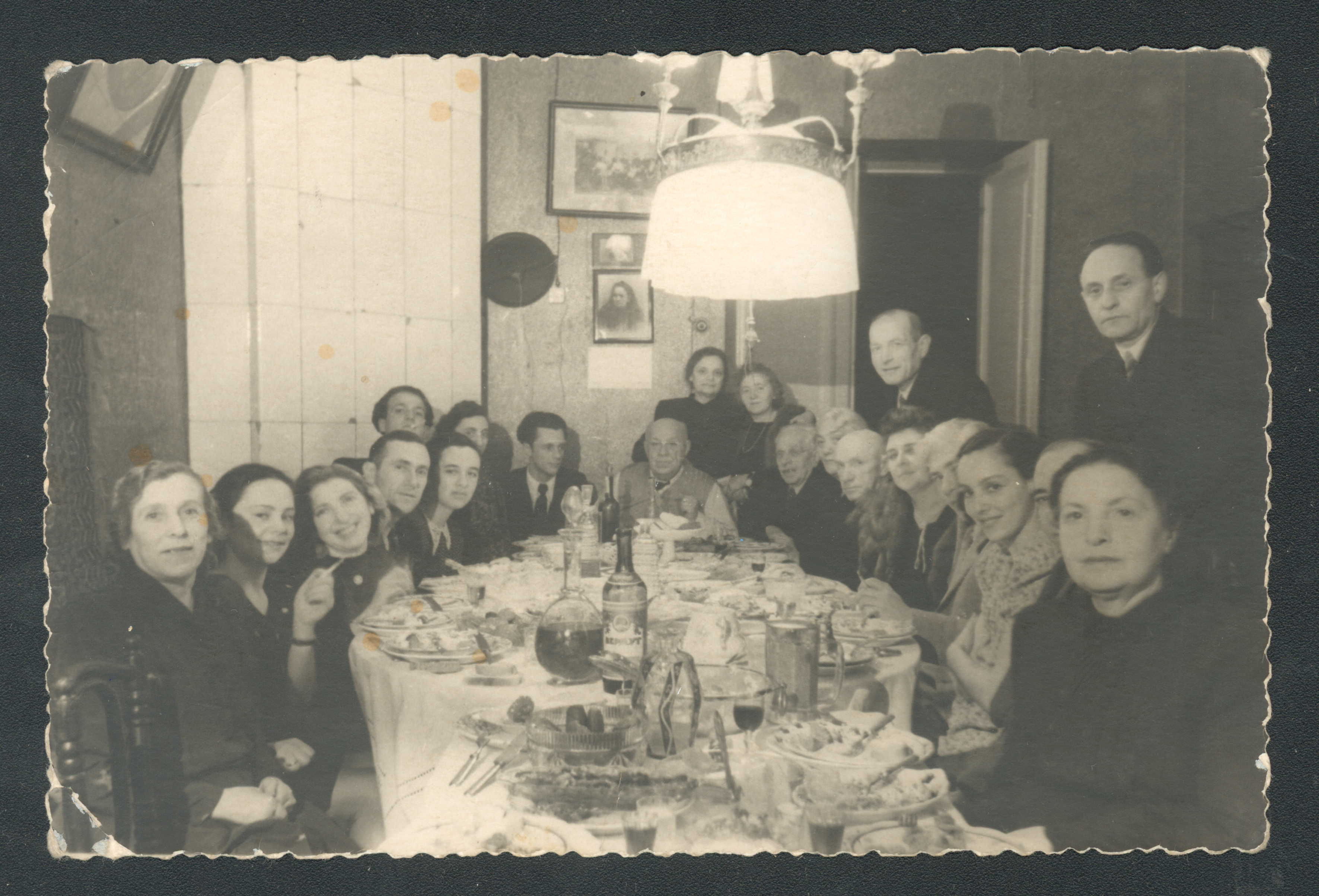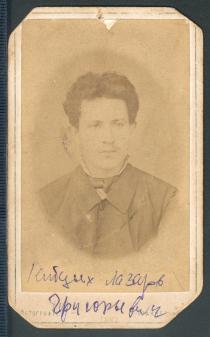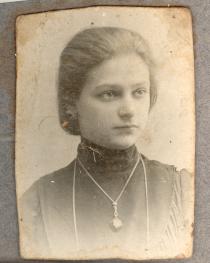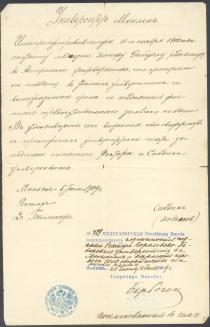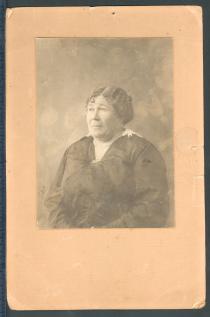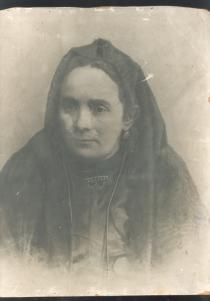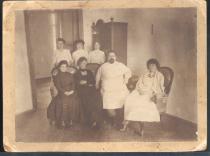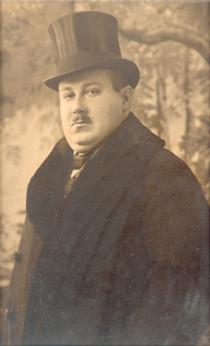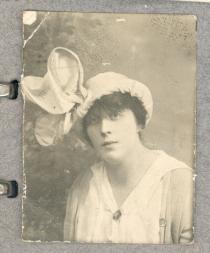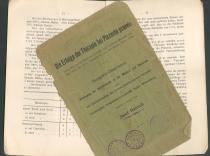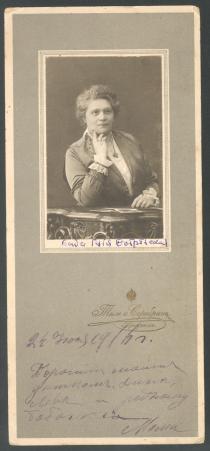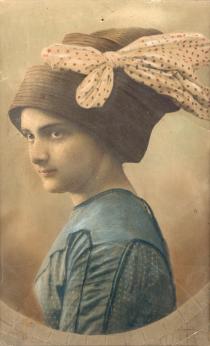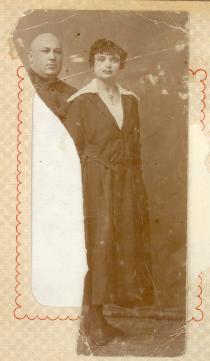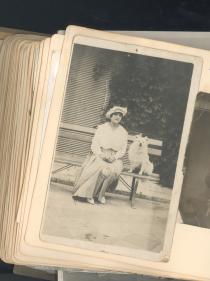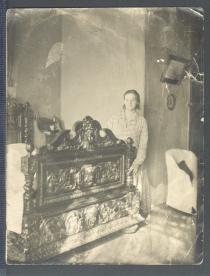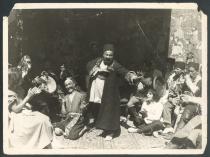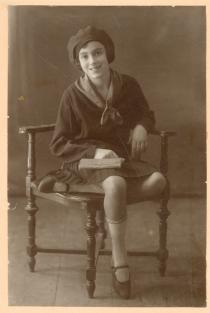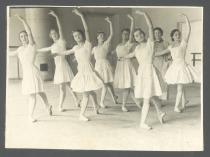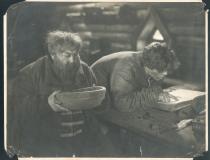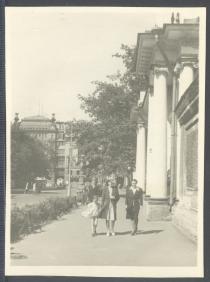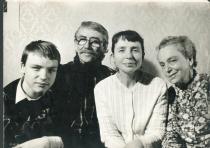In this photo we are celebrating the New Year of 1948 in our apartment in Rubinstein Street. Unfortunately, many of our visitors of that time have already passed away. It makes this photo even more valuable for me. At the center of the table, ast its far end, is my grandfather Iosif Raitsykh. Of course, all our family is there: Grandmother Sara, Mother Genrietta and I. Among the visitors you can see the family of my stepfather Michael Lvovich Dolkart; the father of well-known actor Ben Bentsianov Noi Evseevich Baranchik; other friends and relatives.
While working in Kirovsky Theater, my mom found herself in a specific environment, with its own rules and traditions. That was a special theater, the Imperial Маriinsky Theater, where Jews had never been admitted! A tradition remains a tradition. But that tradition was broken in the Soviet times. Before the revolution there were no Jews in ballet, even musicians of the orchestra all got christened.
When the war began in 1941, the Kirovsky Theater was evacuated to Molotov in an organized manner. Artists were permitted to take no more than 20-30 kilograms with them on the train. It was a train especially provided for the employees of the Kirovsky Theater. Families of artists and employees were allowed to go by the same train. By miracle that train wasn’t bombed on the way. Many trains were heading East then – to Perm, to the Urals. The trip in general was a hard and long one; some babies were born on the train. By the way, Grandfather attended to a delivery there, on the train.
I was born in October 1941 in Perm, in evacuation, it was the city of Molotov then. The war was going on by then. A few more children were born there, to actors’ families, so here I am, one of them. In Molotov my mom received the bad news about the death of her husband in 1942. In Perm the Kirovsky Theater conducted ballet and opera performances. They lived very poorly, there wasn’t enough to eat, not enough clothes to put on, but they proceeded to perform.
Shortly after the war was over, Mom married Mikhail Lvovich Dolkart, but they got divorced soon. Dolkart was Jewish, but my mother somehow couldn’t live in harmony with him for long. Jewish traditions in our family were kept only by Grandfather. Then Mom finished a correspondence course at the Conservatory and taught in the famous Leningrad Ballet on Ice. After a serious operation she left the stage. By then she had another husband, who was very devoted to her and took care of her after the operation. He saved my Mom, but died himself, and Mom’s mother-in-law could not forgive her for that. Having left the theater, Mom hadn’t lost her interest in ballet. She participated in the restoration of the city after the war. The Kirovsky Theater needed repairs, but there was a lack of manpower. Actors mended their costumes, washed the interiors of the theater after the war, participated in the restoration. It is all true, they really washed the boxes, dress circles and so on.
I remember the celebration of the secular New Year of 1948, when I was seven years old. It was a usual secular celebration. There were many relatives and friends, and we have a photo from that event. The celebration took place in our home, because we had those two huge through-passage rooms, so we had to receive the guests anyway. Such were the dancing halls in the past.
